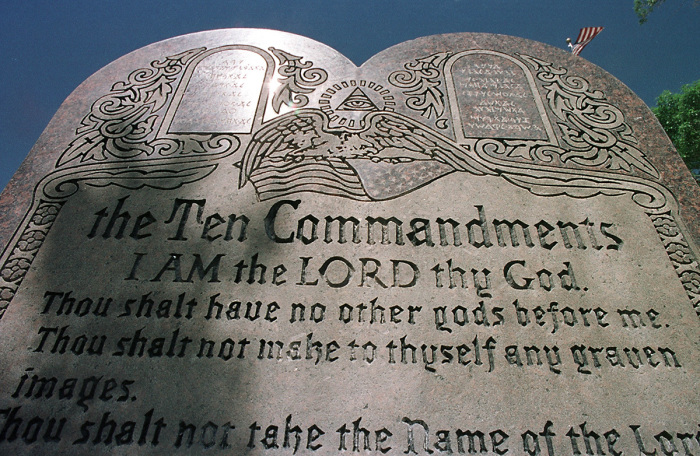Ruling claims humans ‘evolved over several million years’

A federal judge has issued a temporary injunction blocking a Texas law that would have mandated the display of the Ten Commandments in every public school classroom across the state.
In his ruling on Wednesday, U.S. District Judge Fred Biery in San Antonio temporarily prohibited 11 Texas school districts from displaying the Ten Commandments.
The Clinton appointee said a lawsuit filed by a coalition of Dallas-area families, faith leaders and civil liberties advocates raised questions about the constitutionality of Senate Bill 10, which would have required the displays in schools statewide starting September 1.
The decision marks the third time a federal court has struck down such a state-level requirement, following similar rulings in Louisiana and Kentucky.
Biery’s 55-page ruling emphasized the potential impact on students and teachers, noting that “even though the Ten Commandments would not be affirmatively taught, the captive audience of students likely would have questions, which teachers would feel compelled to answer. That is what they do.”
He maintained that such displays could lead to unintended religious discussions, placing educators in the difficult position of navigating complex theological issues in a public school setting, potentially infringing on students’ rights to a secular education.
As an example, the judge offered a fictional account of a similar law in Hamtramck, Michigan, where the majority Muslim community “decreed” that the Quran should be taught in public schools. As part of the example, Biery quoted directly from the Quran.
“While ‘We the people’ rule by a majority, the Bill of Rights protects the minority Christians in Hamtramck and those 33 percent of Texans who do not adhere to any of the Christian denominations,” the judge wrote.
He also cited the biblical accounts of Abraham leaving the land of Ur to proclaim, as the judge wrote in quotations, “the one true God.” Naming Moses, Jesus and Mohammed as the “triad of the ‘desert religions,'” the judge said elsewhere other belief systems were formed, including “those which have come to exist in the American experience.”
Claiming that humans “evolved over several million years to be the only species which knows it will die,” Biery attributed the rise of human religion to people “not wanting their existence to end.”
Quoting everything from Stephen Hawking to Sonny and Cher, the judge also quoted from John 11:35, saying Jesus — who he called the “cousin” of Moses and Mohammed — would have wept if he saw the “blood spilled by their followers against each other.”
Writing that SB 10 “officially favors Christian dominations over others” and “crosses the line from exposure to coercion,” Biery expressed concern that public displays of the Ten Commandments “are likely to send an exclusionary and spiritually burdensome message” that would identify the plaintiff families as “the other.”
“The displays are likely to pressure the child-Plaintiffs into religious observance, meditation on, veneration, and adoption of the State’s favored religious scripture, and into suppressing expression of their own religious or nonreligious backgrounds and beliefs while at school,” the judge wrote.
In his closing statement, Biery — a 77-year-old known for using puns and colorful language in his rulings — appeared to suggest Christians might resort to violence in response to his ruling. He offered a “prayer” using the New Testament phrase “grace and peace” and concluding with “Amen.”
“For those who disagree with the Court’s decision and who would do so with threats, vulgarities, and violence, Grace and Peace unto you,” he wrote. “May humankind of all faiths, beliefs and non-beliefs be reconciled one to another. Amen.”
The suit names 11 of some of the state’s biggest school districts, including Houston ISD, Austin ISD, and Plano ISD, but notably excludes Dallas ISD. The plaintiffs contend that the law passed by the Texas Legislature in 2024 violates the First Amendment’s Establishment Clause, which ensures the separation of church and state, and the Free Exercise Clause, which protects individuals’ rights to practice their religion freely.
The case is expected to move to the 5th U.S. Circuit Court of Appeals, which ruled against a similar Louisiana law in June, before potentially advancing to the Supreme Court, where a 6-3 conservative majority could redefine the boundaries of church-state separation.















